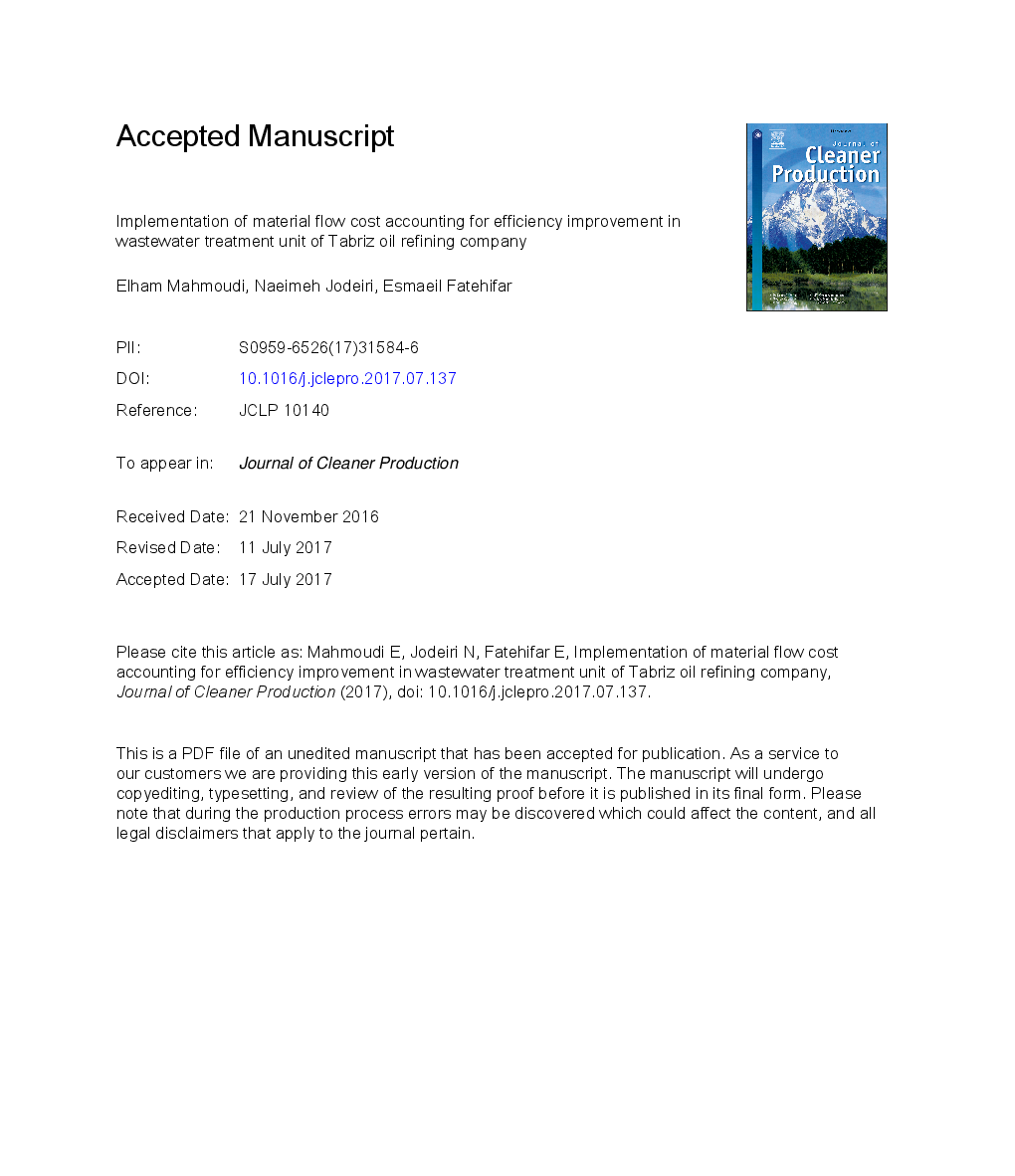ترجمه فارسی عنوان مقاله
اجرای حسابداری هزینه جریان برای بهبود بهره وری در واحد تصفیه پساب شرکت پالایش نفت تبریز
عنوان انگلیسی
Implementation of material flow cost accounting for efficiency improvement in wastewater treatment unit of Tabriz oil refining company
| کد مقاله | سال انتشار | تعداد صفحات مقاله انگلیسی |
|---|---|---|
| 98060 | 2017 | 26 صفحه PDF |
منبع

Publisher : Elsevier - Science Direct (الزویر - ساینس دایرکت)
Journal : Journal of Cleaner Production, Volume 165, 1 November 2017, Pages 530-536
ترجمه کلمات کلیدی
جریان هزینه جریان حسابداری، محصولات منفی، محصولات مثبت، کاهش هزینه، روند بهبود،
کلمات کلیدی انگلیسی
Material flow cost accounting; Negative products; Positive products; Cost reduction; Improvement process;

